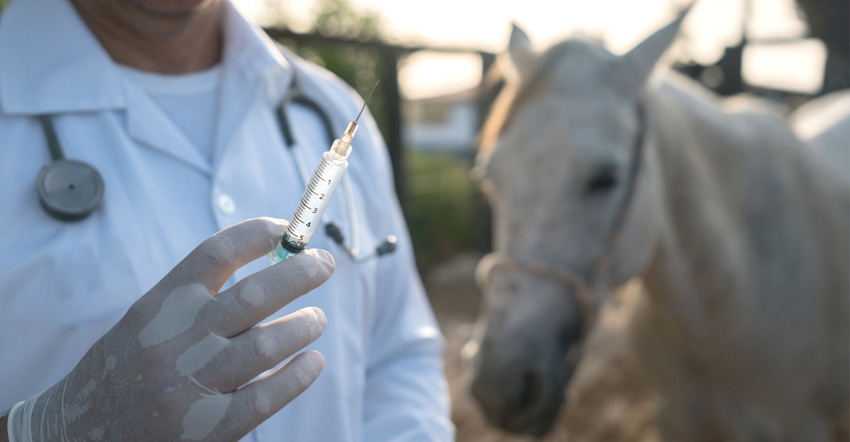October 21, 2020

The first discovery of eastern equine encephalitis in a horse in the Upper Peninsula has been confirmed by the Michigan Department of Agriculture and Rural Development.
The case in Baraga County indicates mosquitoes carrying EEE continue to be active, and all Michigan residents still need to take precautions to protect their animals as well as themselves, MDARD advises.
EEE is a dangerous, zoonotic mosquito-borne disease that typically is seen in the state from late summer to early fall. Last year, Michigan experienced 50 cases of EEE in animals and a record of 10 human cases.
So far this year, two human cases of EEE and 36 animal cases have been confirmed across 15 Michigan counties. The human cases of EEE have been confirmed in residents of Barry and Montcalm counties, and the Montcalm County resident has died.
“Our sympathies to the family and friends of this Michigan resident,” says Dr. Joneigh Khaldun, chief medical executive and chief deputy for health at the Michigan Department of Health and Human Services. “EEE is one of the most dangerous mosquito-borne diseases in the United States, which is why we made the decision to conduct aerial treatment last month. We continue to urge Michiganders to take precautions against mosquitoes."
The latest reports of the disease involve horses found in Livingston and Baraga counties. To see the presence of EEE so far northward in the Upper Peninsula is not uncommon. Last year, two cases of the disease were reported in animals from Houghton and Ontonagon counties.
Also, while the Baraga County case is the first case of the disease in the Upper Peninsula this year, Wisconsin has had a number of EEE cases within its northern counties, including Forest County, which borders the Upper Peninsula.
Protect horses, people
“Given the trends of EEE and other mosquito-borne diseases over the last two years, owners of horses and other animals across the entire state need to make vaccines and mosquito mitigation practices routine,” state veterinarian Nora Wineland says.
“The mortality rate of EEE in horses can be as high as 90%, so it’s unlikely you’ll get a second chance to vaccinate an animal after it becomes infected. And even though mosquito season is coming to a close as the weather gets colder, it is important for owners to work with their veterinarian to ensure proper timing of vaccination.”
While Michigan has been experiencing some cooler temperatures this week, the mosquitoes that carry EEE will remain alive and active until there has been at least one hard freeze where the temperatures fall below 28 degrees F for several hours.
It is still necessary to eliminate standing water on one’s property, bring animals into a barn from dusk to dawn to avoid peak mosquito activity, vaccinate horses against the disease, and contact a veterinarian if an animal displays any sign of illness.
In humans, signs of EEE include the sudden onset of fever, chills, and body and joint aches. EEE infection can develop into severe encephalitis, resulting in headache, disorientation, tremors, seizures and paralysis. Permanent brain damage, coma and death also may occur in some cases.
In early September, the increasing number of EEE cases being discovered in horses prompted the Michigan Department of Health and Human Services to initiate aerial treatments to mitigate the spread of the disease and help protect human health. This resulted in 462,000 acres being treated.
MDHHS will continue to monitor the situation, and treatment zones could be added if new cases are found and aerial treatment would be effective to reduce the risk of exposure.
Applying insect repellents, wearing long-sleeved shirts and long pants, and following other precautions can help Michigan residents avoid mosquito bites and stay healthy.
For more information about EEE and other mosquito-borne diseases, visit michigan.gov/emergingdiseases.
Source: MDARD, which is solely responsible for the information provided and is wholly owned by the source. Informa Business Media and all its subsidiaries are not responsible for any of the content contained in this information asset.
You May Also Like




